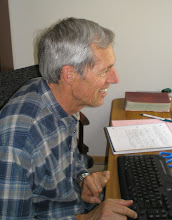"The Lord Himself is the one who supernaturally places His apostles into their offices. They were not established or ordained into that position by any man. The apostle Paul seems to define himself as an apostle because he has seen the Lord. This seems to be a prerequisite. In the age of modernity, governments, corporations, and even churches have been controlled from the top down, with systems of rules and regulations, with the guiding virtues of strife and selfish ambition. The postmodern era , however, seem most ripe for apostolic leadership, which leads by relationship in a servanthood position. True apostles will not be interested in maintaining control. Instead they will seek to reproduce themselves. Their goal will be to raise up others capable of taking the reigns—'establishing elders'—then moving on to break open more ground for the Kingdom. They will be spiritual fathers who want to raise up children who surpass themselves."
September 17, 2009
True Apostles
"The Lord Himself is the one who supernaturally places His apostles into their offices. They were not established or ordained into that position by any man. The apostle Paul seems to define himself as an apostle because he has seen the Lord. This seems to be a prerequisite. In the age of modernity, governments, corporations, and even churches have been controlled from the top down, with systems of rules and regulations, with the guiding virtues of strife and selfish ambition. The postmodern era , however, seem most ripe for apostolic leadership, which leads by relationship in a servanthood position. True apostles will not be interested in maintaining control. Instead they will seek to reproduce themselves. Their goal will be to raise up others capable of taking the reigns—'establishing elders'—then moving on to break open more ground for the Kingdom. They will be spiritual fathers who want to raise up children who surpass themselves."
John Crowder, The New Mystics




